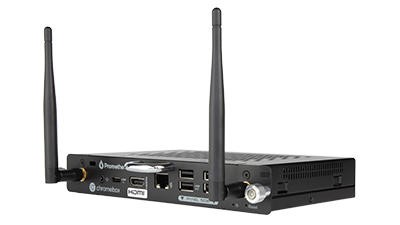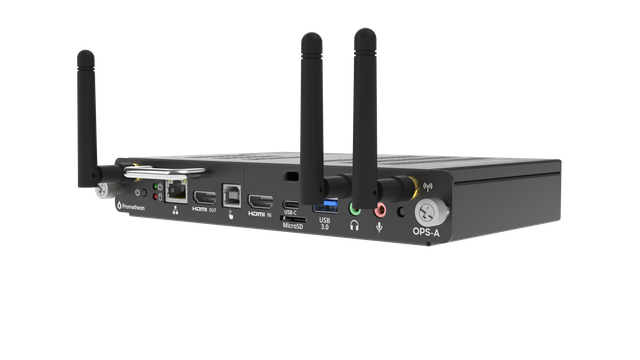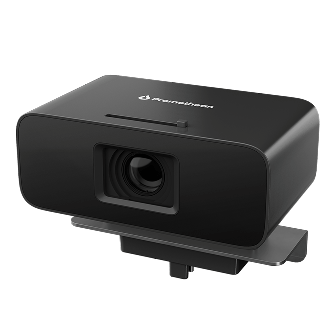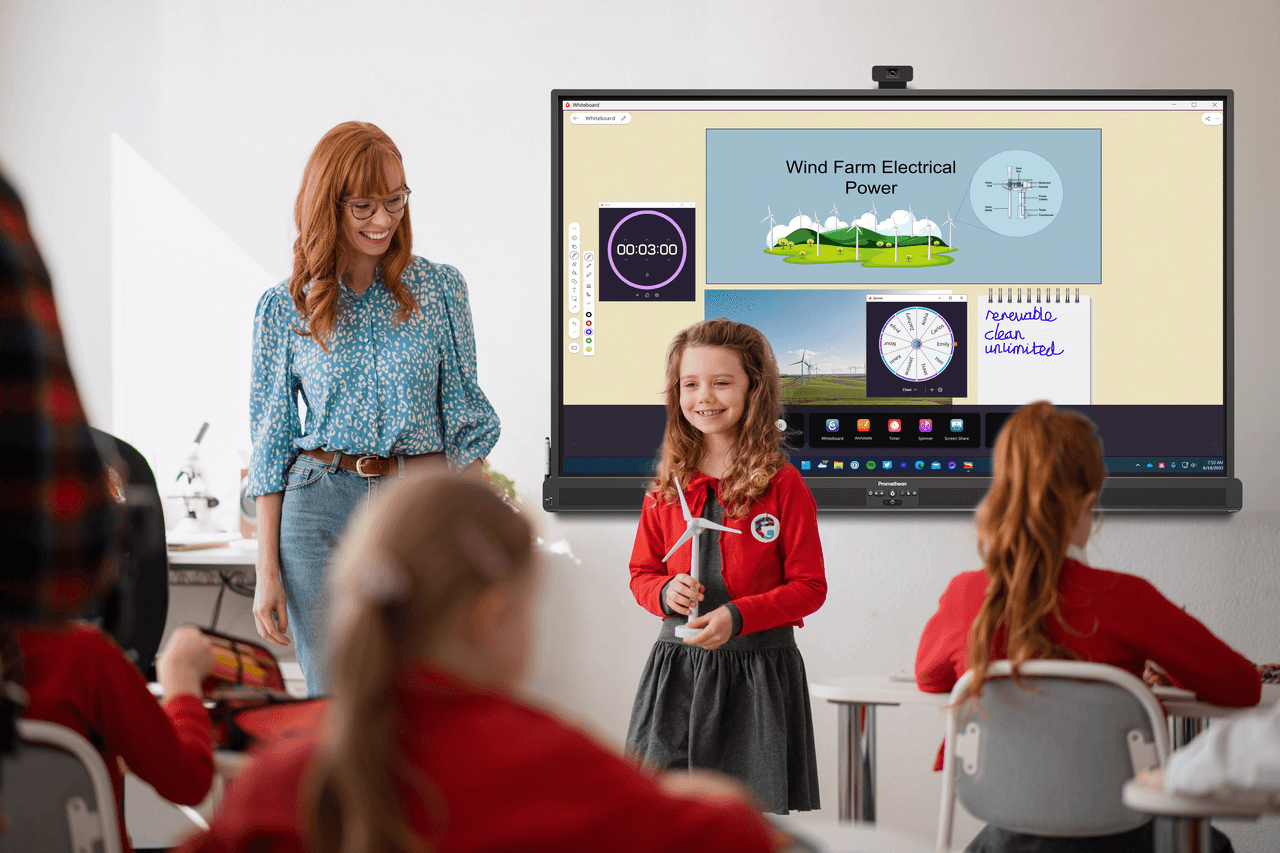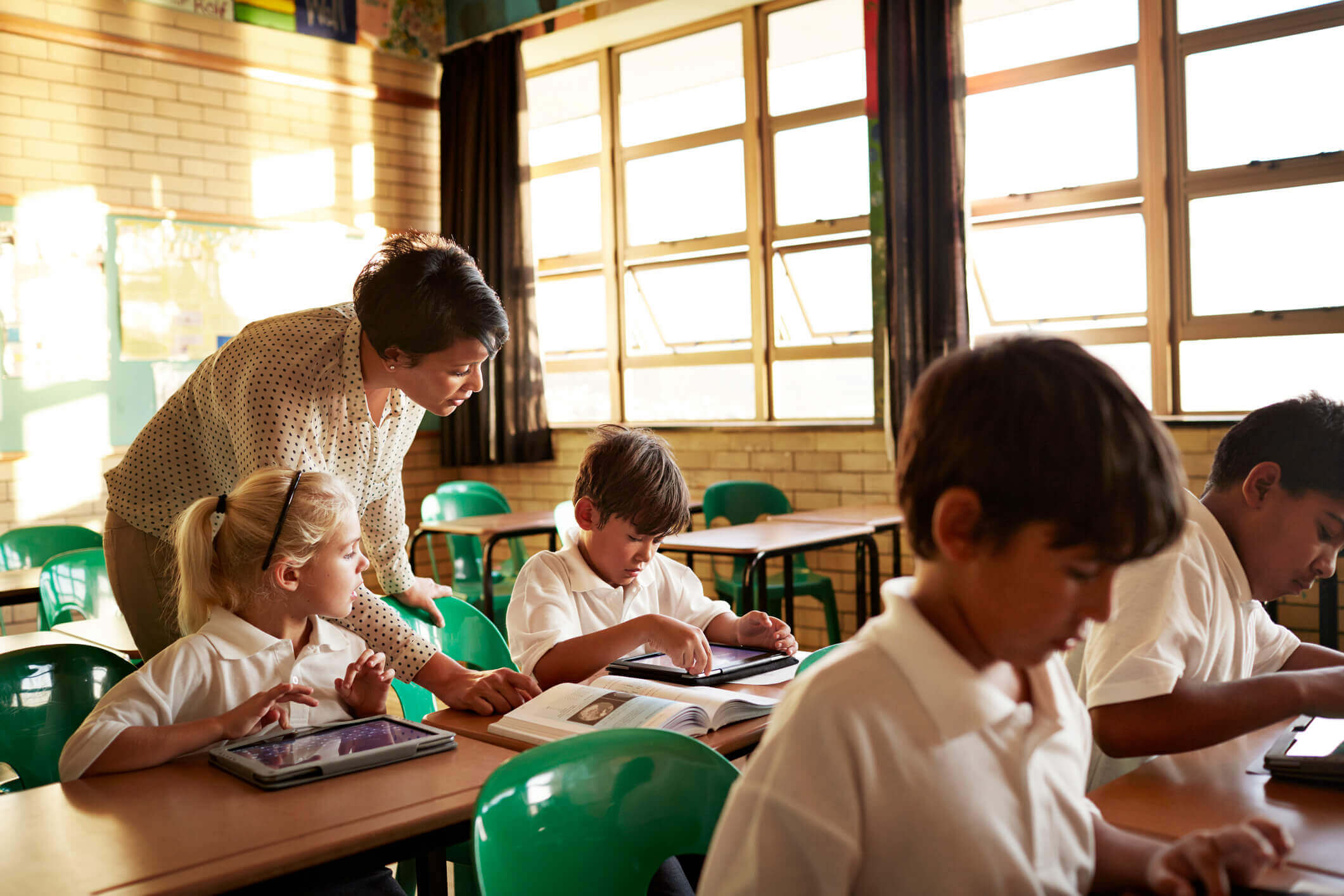Published on December 20th, 2022
Educating and Engaging the Next Generation of Students
23 minute read

Although the world and our communities have changed dramatically in the past few decades, schools, classrooms, and teaching methods have remained quite static. Apart from the addition of the occasional overhead projector, or TV for educational videos, not much has changed in the way we teach new generations of students.
While this may have somewhat worked out until the millennial generation, the tides have turned in recent years. As the post-millennial generation arrived, the demand for teaching reform is louder than ever.
The post-millennials have stepped into classrooms, and with them, two generations that are extremely tech-savvy. This generational cohort requires different forms of engagement and education than their previous generations.
Textbooks used to be a fundamental part of teaching, but the use of interactive whiteboards (otherwise known as interactive displays) has been on the rise in schools trying to become more contemporary and innovative.
However, incorporating these tech devices is not the only change required in the classroom.
So, how do teachers educate and engage Generation Z and Generation Alpha students? How does this generation learn? What must educators know to equip this age group with the necessary tools to have meaningful and productive lives?
About Generation Z
In order to understand the how and what behind educating and engaging the next generation of students, it is important to first understand this new generational cohort.
Generation Z encompasses children and young adults who were born between the mid 90s to late 2010s.
They are known as digital natives, born into a world after the invention of the internet (in 1995). Because of this, Gen Z have formed a level of emotional attachment to this technology. In fact, half of the people of Generation Z feel more comfortable speaking to other people online than in real life (Palley, 2012).
Due to their permanent access to the digital world, our world and society have also become much more accessible and smaller to this generation. They are much more connected, clued-up, and opinionated about social issues and equality, and extremely entrepreneurial as new jobs and means to make money basically arise on a daily basis.
On top of this, Gen Z is extremely diverse – with minority groups and individuals demanding to be seen, heard, and represented. This also goes for classrooms and teaching material in class textbooks.
Technology has a distinct influence on this generation and how Gen Z students live their lives, socially engage, entertain themselves and learn.
Due to the changed lifestyle that depends much more on modern technology and the internet, learning preferences and learning abilities have changed drastically too.
Attention spans have decreased dramatically, with FOMO (i.e. the Fear Of Missing Out) being one major reason why Gen Zers are so attached to their phones. The need to constantly refresh social media websites in order not to miss any updates or notifications is seen as a problematic trait that can almost seem obsessive in nature.
Research has shown that this resulted in the average millennial attention span of 12 seconds, decreasing to a minute eight seconds with Gen Z.
About Generation Alpha
The generation succeeding Generation Z is known as Generation Alpha, and is referred to as the group of young adults and children that have been born from the year 2010 onwards.
This group has been growing up in a completely digital environment, and are the true digital natives of our age. The early years of this generation coincided with the release of the likes of the iPad, which had a significant impact on how we deal with our daily lives and interact with media, or even watch TV.
To mark the start of something so significant and completely new, researchers agreed to name this generation “Alpha”, after the first letter of the alphabet, as this generation presents so many unique characteristics to those we have seen in the decades before.
Generation Alpha is even less dependent on physical interaction with their peers, and is so used to having access to technology 24/7, that the way they perceive the world and interact with it will differ completely from any generation before them.
Gen Alpha receives increasingly personalised technology, thanks to Siri and Alexa, and therefore demands their basic and higher education to be more focussed on individual learning and a curriculum tailored to what matters to them.
Thanks to having access to knowledge 24/7 through their tablets and smartphones, the way this generation accesses education is incredibly independent, very contemporary, and always on the beat of the times.
This is important for educators to note, as the way that this generational cohort will be learning effectively will show to be completely different from what has been used in the past.
How to Engage, Educate and Teach Generation Z and Generation Alpha?
So how can the teaching world adapt to these challenges and characteristics of Gen Z and Gen Alpha students effectively?
Due to the different characteristics of Generation Z and Alpha students and how to keep them engaged, it is important to change the educational services compared to previous generations.
As the first generations to never use an encyclopaedia or atlas in order to find out what a word means or where a country is, the education of Gen Z and Generation Alpha students shouldn’t focus on trying to absorb information, but more on what to do with said information and how to engage with it.
Below are some examples of what modern teaching for this generation of students can look like.
Interactive learning
Due to the strong dislike for lecture-based courses or long educational videos of Generation Z students, teachers have to come up with alternative ways to keep their students engaged.
Instead, modern education methods with tools such as innovative teaching software and interactive whiteboards can be used by teachers in order to make learning enjoyable for Generation Z students.
Here’s how:
1. Online quizzes
Based on the shorter attention span of Gen Z and Alpha students, short and engaging online exams or quizzes are a better alternative to test their knowledge than lengthy written essays. On top of that, they can use their mobile phones to do these quizzes, which enables them to use their education medium of choice.
2. Games
Interactive games allow students to share knowledge and engage with one another. Games also have the ability to harness concentration and focus in a way that reading lengthy articles cannot. Virtual games and game challenges are a common part of Gen Z’s and Gen Alpha’s world, and are therefore much more effective and interesting for this generation.
3. Social media
Watching Facebook Live Videos, TED Talks or other educational YouTube content can be a fantastic way for students to absorb knowledge and, at the same time, strengthen their knowledge retention, critical thinking, and communication skills.
By letting your students watch a video and then asking them to summarise it for themselves before asking them to post comments and discuss the topic in a group chat online (or in the classroom) can be highly effective in that way.
4. Peer interaction
Even though the majority of Generation Z and Alpha students communicate online, they prefer to work in small teams or groups of two in real-life settings, as it harnesses their creativity and interactive skills and helps them generate new ideas.
Class discussions can also play a huge role and have a positive effect on how Gen Z students learn.
5. Personalised
Learning these days should be about more than just memorising dates and events in history or numeric theorems. Today’s students require real-life examples and knowledge that they can use in their daily lives – and more importantly, their careers.
6. On-demand
It is recommended that teachers can share knowledge and manuals online via blogs and other online platforms to make them more accessible to their students.
For Generation Z students, almost everything in their everyday life is available on demand: for videos and movies, there is YouTube, Netflix and a plethora of other streaming websites; for music, there is Spotify; and for communication, they have social networks such as Instagram or TikTok. Even love and affection come on demand, thanks to dating apps like Tinder or Bumble.
Therefore, it only makes sense to make knowledge available to your students as a means of teaching Generation Z.
7. Hybrid
As Generation Z and Alpha students can switch easily between in-person as well as online interaction, so should the teaching methods for this new generation.
As you have a group of digital natives, it would be amiss to simply teach with a chalkboard and in a monologue,instead of using their tech-savvy nature for your and their benefit.
The post-millennial generation learns best if there is a mix of in-classroom and e-learning initiatives, where they can interact with their peers and teachers in the real world as well as via online platforms and games.
What Does a Gen Z and Alpha-Friendly Classroom Look Like?
With textbooks and chalkboards belonging to the last century, the classrooms of the digital natives need new educational accessories and technologies in order to be at the forefront of contemporary teaching.
In order to make use of social media and online platforms as learning tools, devices that can connect to the internet, play videos or podcasts and be interactive become a must-have for every classrooom.
Interactive displays or interactive whiteboards are the perfect solutions to the learning preferences of Generation Z students as well as Generation Alpha students. Especially for the latter, who grew up with the tablet.
Here’s how to bring these devices into the classroom, with the help of subjects and teaching material:
1. Cross-disciplinary material
Because Gen Z and Alpha students require more engaging content in order to stay focused and pay attention to the taught material, teachers should consider integrating various disciplines into their class discussions and teach topics that range from STEM to language as well as arts.
As the focus for Gen Z and Alpha students lies much more on their individual needs and how they can benefit from the taught material, this way their learning preferences are more likely to be fulfilled.
2. Interactive and student-informed learning
Letting students fill the lessons with their own ideas and needs and letting them get involved in their own development will provide useful insights on engaging educational content for teachers.
If you offer students the opportunity to decide how they want to complete the next assignment or do their homework, you provide them with the ability to become more independent learners and develop more self-confidence.
3. Real-life learning
Using interactive, scenario-based material will help your students develop more hands-on solutions and use their knowledge to solve real-world problems.
4. Integrated technology
As we have already established, today’s students are extremely tech-savvy and therefore require technology to be a major part of their learning material. Many will struggle to write with pens for long hours and prefer to type on their laptops or tablets, as this is also a much faster method.
Letting them integrate their smartphones, laptops, or tablets by making the curriculum accessible online is a great method of engaging the next generation of students.
The use of an interactive whiteboard can also further enable the students to share their homework, essays, or results with their peers.
Reading lengthy articles and listening to hour-long one-sided lectures should be discouraged to keep the attention span of Gen Z students. Instead, interactive whiteboards can function as wonderful visual aids.
FAQs
Below is some further information on how teachers can tackle Generation Z and Alpha by educating and engaging them in a meaningful way.
How does Generation Z view learning?
While millennials are still very much about real-life interactions with their peers and teachers, more than half of the post-millennial generation enjoys online learning interactions more than in-classroom learning.
Most importantly, they want to be hands-on – by tackling issues and research questions themselves instead of just reading about the theory of a problem in a textbook.
For them, knowledge only matters if it applies to real-life situations, and more importantly, to their experience of real-life situations. Always remember that representation matters more than anything for this generation.
How does Generation Alpha view learning?
Generation Alpha puts a very high emphasis on learning topics that are relevant to their generation and to the current times. Their curriculum needs to make sense in their worldview and feel authentic.
While future generations might have been fine with learning about the Pythagorean theorem and reciting Shakespeare without questions asked, Generation Alpha needs to know how this education is going to help them achieve the best possible outcome in their life.
Another important factor for Gen Alpha is to have a form of connection with their educators, and to feel as though there is a level of mutual trust and respect involved. Educators that simply demand respect will not come very far with this rather rebellious and clued-up generation.
This goes hand in hand with the fact that top-down communication and task management will not be successful with a generation that appreciates working in groups with their peers (even though this doesn’t have to happen in person and could be via the likes of Zoom).
How do Gen Z and Gen Alpha improve the learning environment?
As this generational cohort refuses to accept passive learning and requests to be interactive in their classroom and during e-learning, the learning environment is changing (or rather needs to change) quite drastically.
While previous generations were used to sitting in a classroom for an hour straight and listening to their teachers give a lecture about a specific topic and taking notes, Gen Z and Gen Alpha students demand engaging content that they can relate to, use directly, and interact with.
Their short attention span and focus have also changed the way that educators and teachers need to share information. Instead of holding a lecture, teachers now have to provide information in different formats. This includes using videos or games to keep their students’ attention and ensure that they retain the information provided to them.
While millennials were provided with education, Generation Z and Alpha students want to be an active part of their curriculum, want low hierarchies, and are only interested in topics that matter to them.
Which generation is the most educated?
This is quite an interesting one!
While Generation Alpha is definitely the most tech-savvy and technology-infused generation and will therefore beat any previous generation when it comes to knowledge related to this field, there have been some interesting developments in recent years.
Generally, Gen Z and Gen Alpha were on the verge of surpassing the millennials in their levels of education. However, the recent pandemic has put a dramatic dent in the level of current students.
There is a wide range of reasons behind this, of course.
First of all, a lot of educational content simply wasn’t readily available for students to seamlessly blend from in-classroom learning to 100% e-learning from home. Therefore, there is quite a bit of backlog in terms of content that should have been taught already.
Secondly, the pandemic caused a lot of emotional and mental stress on many people, especially young students who heavily depend on their daily social interactions as part of their learning requirements. Feelings of isolation and emotional distress due to the fear of the pandemic lead to many pupils having difficulties when learning.
A lot of learning material simply was never taught, because of illness among teachers or a general shortage of educators.
All of the above, among several other reasons, are responsible for the millennial generation currently being the most educated generation of students.
How do Gen Z and Alpha students engage?
Members of Generation Z and Alpha often engage and communicate with the use of emojis or internet memes. Lengthy sentences and text messages are being used less and less. Generation Alpha is, even more, a reclusive generation that does not require in-person contact at all, and can just chat with their peers via the internet all day long.
The same should be applied to educational content that is used for this generation. Instead of lengthy chapters in textbooks, educators should provide content in graphic forms and videos to their students.
And of course, this content should come in digital form instead of analogue.
Bring Your Lessons To Life With An Interactive Display
At Promethean, we believe that teaching should be as flexible and innovative as possible, in order to keep up with the fast-paced technological advancements of our time.
The post-millennial generation requires different ways to effectively learn and use their knowledge.
Our interactive displays and interactive display accessories enable teachers to harness the possibilities of modern technology in the classroom and bring about an innovative take on engaging the next generation of students.
For more information on how to use our interactive whiteboards and accessories as well as useful tips and tricks, visit our educational resources.
Sources:
https://docdrop.org/static/drop-pdf/GenZ-08TCI.pdf
https://www.umassglobal.edu/news-and-events/blog/generation-z-traits-teachers-need-to-adapt-to
Related Articles
- How to Engage Students Without Relying Solely on Technology
- 10 Reasons for a Lack of Student Engagement in the Classroom
- How Do You Keep Students Engaged at the Beginning and End of a Lesson?
- How to Engage Disengaged Students
- 11 Optimal Learning Environments to Promote Student Engagement
- What is student engagement?
- 12 Student Engagement Strategies










